High Street Standards Strikes a Chord

At the University, new student bands crop up almost as often as emails from McKenna Blackshire ’25 letting us know where and when to catch the next live show. Everyone on campus might be harboring a secret talent: the math major moonlights as an electric guitarist on the weekends, the linebacker crushes Steely Dan’s “Deacon Blues,” and your favorite professor just might have some funky beats stashed under a pseudonym on Soundcloud. Still, when Bella Rosenblatt ’26 and Henry Kops ’26 arrived on the scene in September 2022, something was missing.
“We both really wanted to play jazz,” Rosenblatt said. “The Wesleyan music scene is obviously teeming with indie bands, which is great, and there are jazz ensembles and classes, but we wanted a more casual space to play.”
Rosenblatt and Kops are both accomplished jazz musicians––a vocalist and a drummer, respectively. Rosenblatt, the daughter of a jazz guitarist, has been taking voice lessons and singing jazz covers since elementary school. At LaGuardia High School on Manhattan’s Upper West Side, she studied classical vocal music and served as president of the Jazz Vocal Club. Kops, on the other hand, says that drumming was his parents’ answer to a kid with too much energy. He didn’t start playing jazz until middle school, when he stumbled into an audition for a jazz music ensemble and fell in love with it.
When Rosenblatt and Kops found each other in their first semester at the University, the next step seemed obvious: start a band. They set up a show in the Grotto––a dimly lit, low-ceilinged room in the basement of Alpha Delta Phi––and set up a few couches facing the corner stage space.
“We basically just put together a band of our friends––people we knew who were interested in playing jazz––and did one long set,” Kops said. “Everyone knew each other, so it was very chill and kind of under the radar. It wasn’t really a jazz scene, because it was just us.”
Still, they dreamed of something bigger.
“We kept getting together and being like, how do we do this? What is it?” Rosenblatt said. “The idea was to build a collective, but what does a jazz collective mean? What’s the structure like? It was going to be bigger than just a band, really a network of students.”
With the help of their original bandmates, Sam Walker ’25, Asa Schiller ’25, and Ellington Davis ’25, Rosenblatt and Kops began inviting more musicians on campus to join them. They called themselves High Street Standards.
“We didn’t know it at the time, but there are a lot of people who really appreciated the opportunity to have a space to play jazz, and they just weren’t doing it because there wasn’t that space before,” Kops said.
They booked the Grotto for a few Thursday nights a month, and people started showing up. Then, more people started showing up. Then more.
“We would play a set, and then open it up to open jam, which wound up being like a fight to the death,” Rosenblatt said. “Every jazz kid wanted to get up there and play. That was really a telltale sign that we needed to expand.”
In Spring 2024, High Street Standards became an official student organization. Rosenblatt and Kops started a mailing list, which quickly grew to include over 100 names and email addresses. When they returned to Middletown for the fall semester, their monthly jazz nights became one of the most popular events on campus.
“We were shocked at how well it all worked,” Rosenblatt said. “This really started as about 20 of our friends on sparse seats in the grotto, watching us play. And then at the beginning of the year, we had lines out the door of the Grotto every jazz night.”
On any given jazz night, four bands play for 30 minutes each, first come, first served. Musicians are surrounded by a packed crowd, draped over couches, squeezed into corners, and often sitting cross-legged on the floor just feet away from the drums. Sets range from jazz standards to R&B and Latin.
“The interesting thing is that we don’t really get to see these groups in tangible form until they’re up on stage,” Rosenblatt said. “They just respond to our email, and then they’re playing. Every jazz night, I show up, and I’m like, ‘Who are these people? They came out of the woodwork, and they’re really, really good.’”
High Street Standards remains true to Rosenblatt and Kops’ original vision: a space open to anyone interested in playing, regardless of expertise or prior knowledge. The “house band”––Rosenblatt, Kops, Walker, Schiller, and Davis––acts as the core group, ready to back up any vocalist or instrumentalist who wants to sit in. If you shoot them an email and show up with an idea, you’ve got a band behind you.
“It’s not like you go to see your friends, and then you leave, right?” Kops said. “People get there early to find a good seat, and then just stay for the entire show.”
Without a doubt, High Street Standards has struck a chord. As the collective looks toward the future, Rosenblatt and Kops hope to keep expanding––welcoming new musicians, new styles, and new interpretations of what the music scene at the University can be. With Rosenblatt’s velvet vocals and Kops’s sharp, kinetic energy on the drums, it’s no wonder that their jam sessions have evolved into a campus institution. Though this spring marks a bittersweet milestone as the final semester for Walker, Schiller, Davis, and other staple jazz night musicians, Rosenblatt and Kops will be back in the fall, cementing the High Street Standards’ legacy of collaboration and creativity for years to come.
Sophie Jager can be reached at sjager@wesleyan.edu.


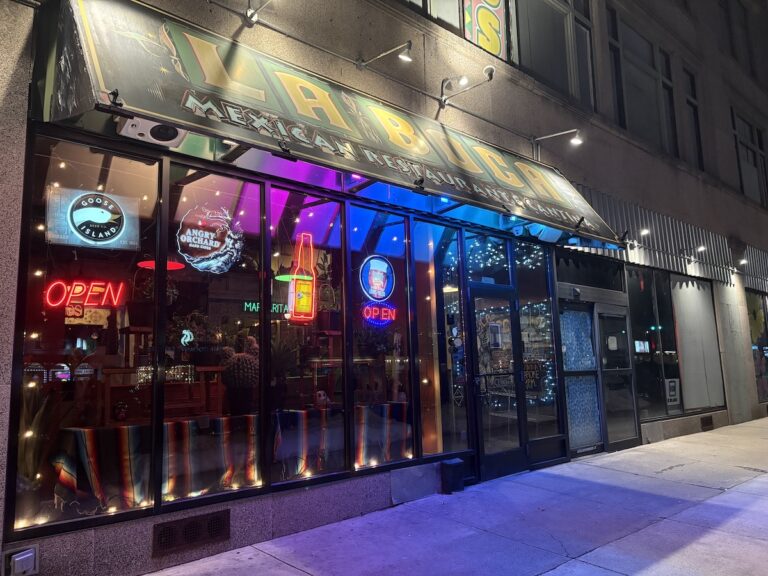
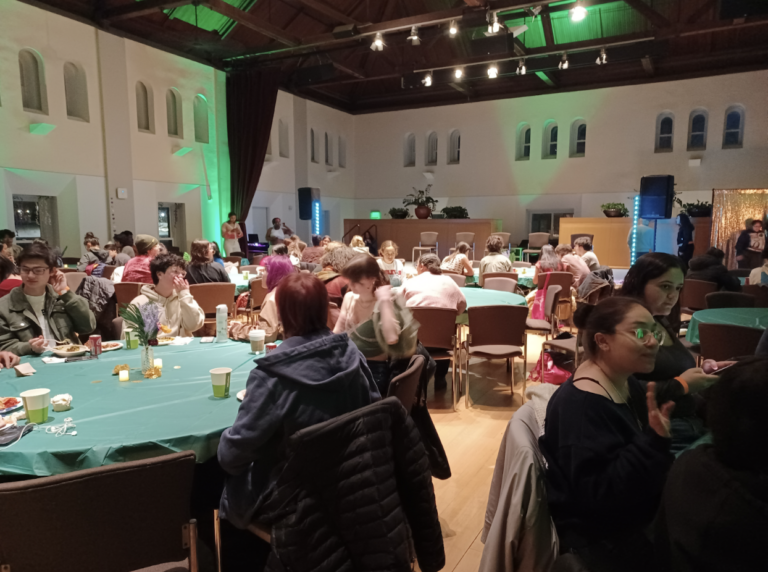
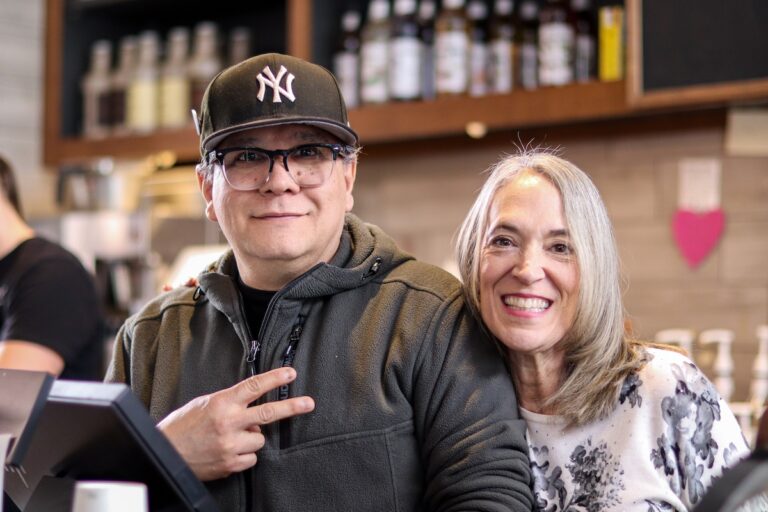
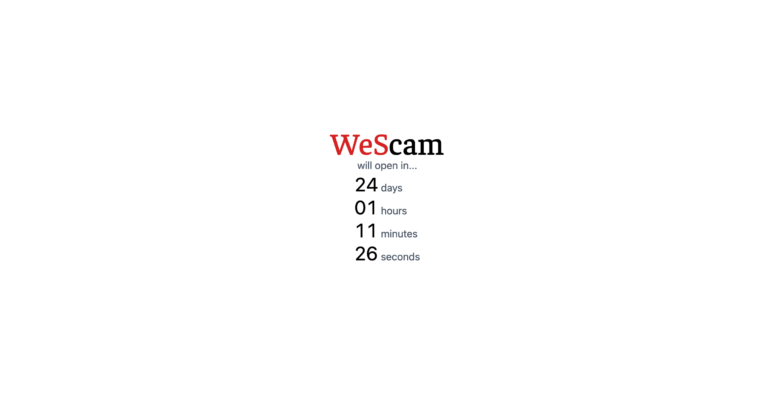
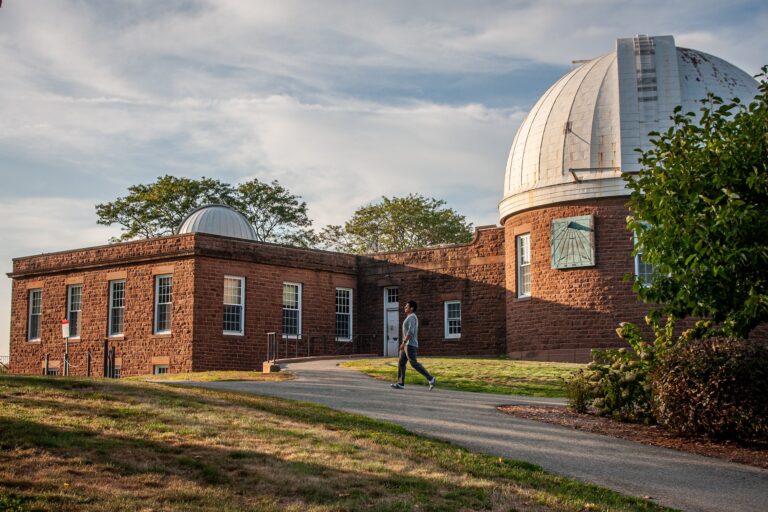
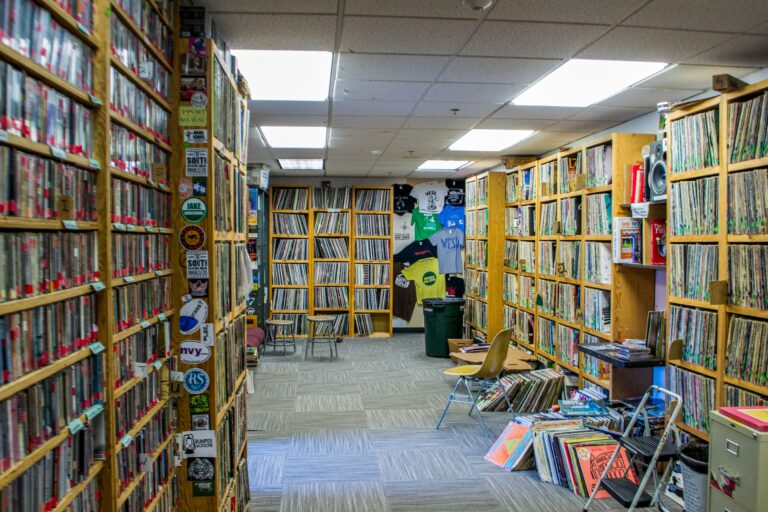
Leave a Reply